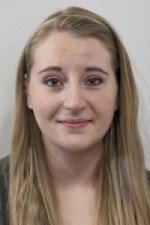At the height of Student Association elections, you hear the word “tools” thrown around quite frequently. It’s nearly impossible to avoid listening to objections from students who think that the political scene at GW is overbearing and pointless.

For all of their intensity, SA elections feel almost like the frenzy of real-world politics. And that’s the point.
This isn’t necessarily about ego-stroking: The opportunity is extremely valuable for those budding politicos who participate. Every student with political aspirations has the opportunity to try out that career on a smaller scale.
Complete with postering day, campaign spending reports, an official debate and endorsements from organizations across campus, campaign season feels real. It’s the most authentic political experience that GW students can have before actually running for office.
During campaign season, most of us are just tired of candidates knocking on our doors to pitch the same platform over and over. But amid all the hubbub, we forget about what’s really going on.
If students think they might be interested in running a campaign someday, they can go out and try it by designing a platform, hiring advisors and even coaching a candidate for a debate. A candidate can see what it’s really like to fight for endorsements and have attacks leveled against them by other candidates.
They can get a taste for the real world, and they can’t get that anywhere else.
Student politicians and campaign workers know exactly what they want to do in life and can try it here and now. If anything, I’m envious of their chance to gain genuine experience without any real-world consequences.
Omar Woodard, who was Student Association president in 2004-2005, was a deputy field director for the Barack Obama campaign in 2008. He now helps lead a venture philanthropy firm, and told me he attributes some of his success to campaigning during elections at GW.
“After knocking on every door in Thurston, you develop a pretty good sales pitch,” he said. “These skills are transferable to your professional career, and it’s worth it for the candidates to be more intentional about what they are learning from this process.”
For those of us interested in politics, we chose GW because there are people here like us. We have students who dream of being presidential campaign managers, chiefs of staff or speechwriters.
GW students aren’t alone in this. Ronald Reagan served as student council president at Eureka College. Bill Clinton was student body president at Georgetown for two years, and Hillary Clinton was president of the Wellesley College Government Association.
Clearly, practice makes perfect.
Running as a candidate in the SA elections – or participating in a campaign – has the same goal everything else we do here does: getting experience we can apply to future jobs. We learn to run nonprofits in the form of student organizations. We try out different professions by interning. We practice running political parties with the College Democrats or College Republicans. We prepare to be journalists at The Hatchet.
So today, when you have a flier thrown in your face or are asked for your vote, just remember that these realistic elections are something that few other schools have. And that’s not a bad thing.
Just like everyone else, SA candidates are practicing for the real world – and here at GW, it’s not a bad thing that student elections are almost as real as they can get.
Sarah Blugis, a sophomore majoring in political communication, is a Hatchet columnist.





